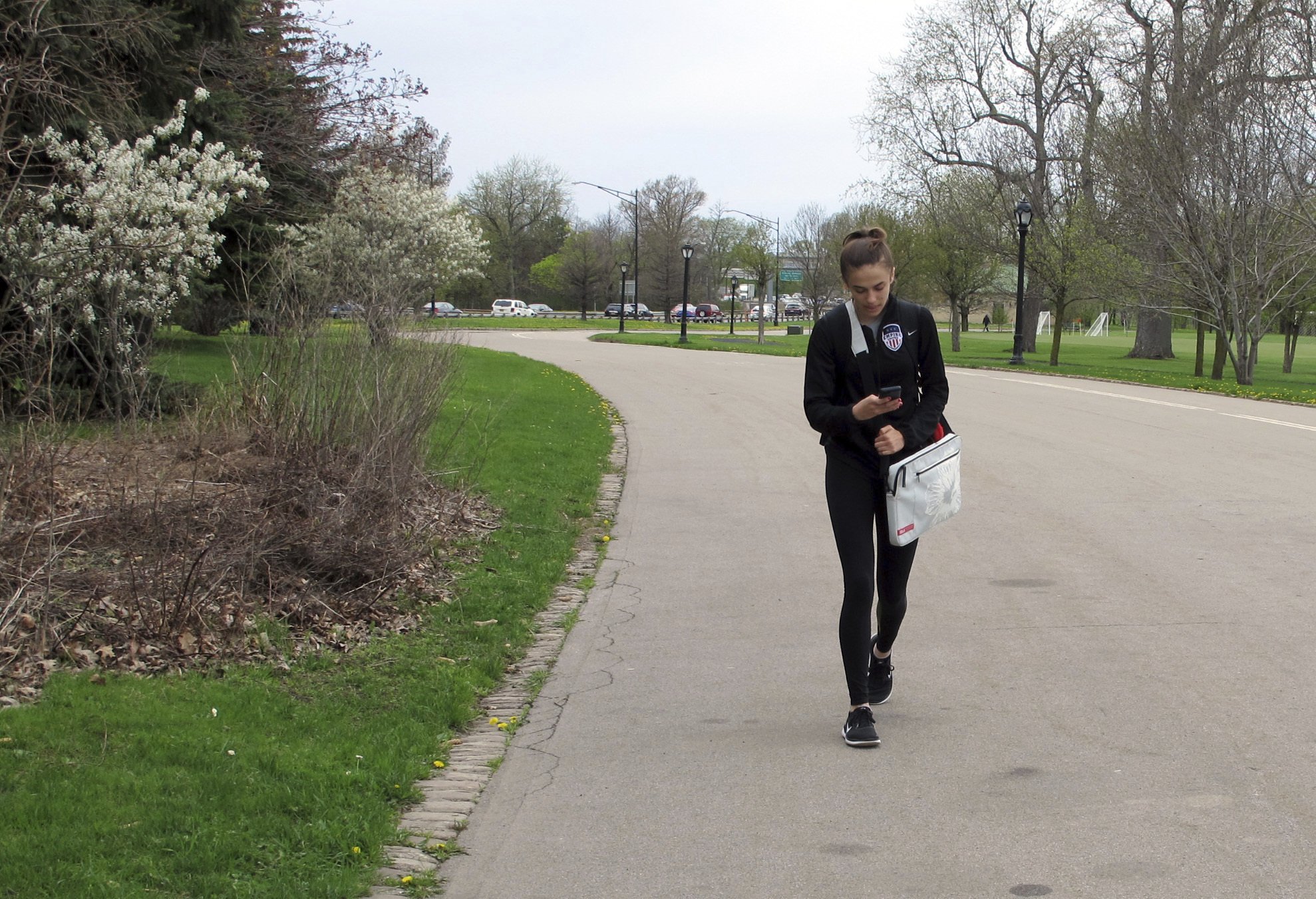Jay-Z’s Made In America festival canceled for the second year in a row
19 days ago

Photo:AP
BUFFALO
High school biology teacher Kelly Chavis knew smartphones were a distraction in her class. But not even her students realized the psychological toll of their devices until an in-class experiment that, of course, was then spreading on social media.
For one class period, students used a whiteboard to tally, in real time, every Snapchat, Instagram, text, call or other notification that popped up. Students were told not to respond to avoid generating replies ... and further notifications.
Teachers around the country have run similar experiments, typically recording dozens of trips to the board. “One girl, just during the one hour, got close to 150 Snapchat notifications. 150!” marveled Chavis, who teaches honors-level courses at Rock Hill Schools in South Carolina.
She’s among a growing number of teachers, parents, medical professionals and researchers convinced that smartphones are now playing a major role in accelerating student anxiety — a trend so pervasive that a National Education Association newsletter labeled anxiety a “mental health tsunami .”
Testing, extracurricular-packed schedules, and perpetual stressors like poverty can all weigh on students. But research now points to smartphones-driven social media as one of the biggest drivers of stress. After all, that’s where college acceptance letters fill Instagram, everyone knows where everyone else is going for spring break, and athletic failures and awkward social moments can live forever.
Jean Twenge, a psychology professor at San Diego State who has studied the issue, said it’s no coincidence that youth mental health issues have risen with the number of phones. “What a lot of teens told me is that social media and their phones feel mandatory,” she said, leading to a loss of sleep and face-to-face interactions necessary for their mental well-being.
Last year, an editorial in the American Academy of Pediatrics’ flagship journal recommended that doctors ask adolescent patients about their social media use as part of routine screening, alongside older questions about home life and drug and sexual activity. “Aberrant and/or excessive social media usage may contribute to the development of mental health disturbance in at-risk teenagers, such as feelings of isolation, depressive symptoms, and anxiety,” three researchers wrote in the journal Pediatrics.
Researchers are still arguing whether phones drive student depression or depression drives phone use. But 70 percent of teens view anxiety and depression as major problems among their peers, according to a February Pew Research Center report. Nearly 60 percent of parents said they worry about the influence of social media on their child’s physical and mental health in the American Psychological Association’s 2017 Stress in America survey.
Schools are starting to react. Many districts now hire outside companies to monitor students’ social media postings for signs of distress. Others invite in yoga instructors and comfort dogs to teach even the youngest kids to keep technology from putting them on edge.
Belfast Area High School in Maine even staged an #unplugged event day in April — but it served to underline the technology’s pull when less than 20 percent of students and staff took part.
Meanwhile, students and parents are filling school auditoriums for screenings of documentaries such as “LIKE” and “Angst”, which explore social media, technology and anxiety. Movements like Away for the Day and Wait Until 8th discourage cellphones in middle school.
Leave A Comment